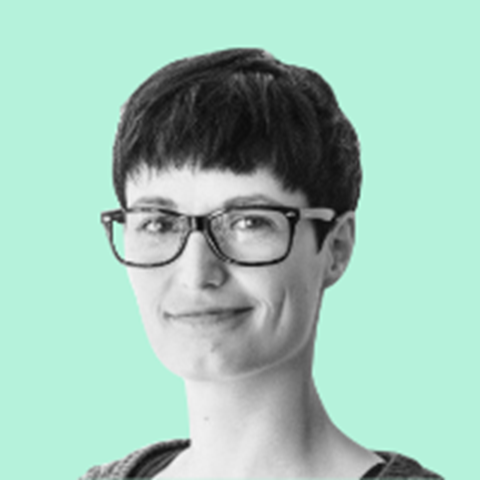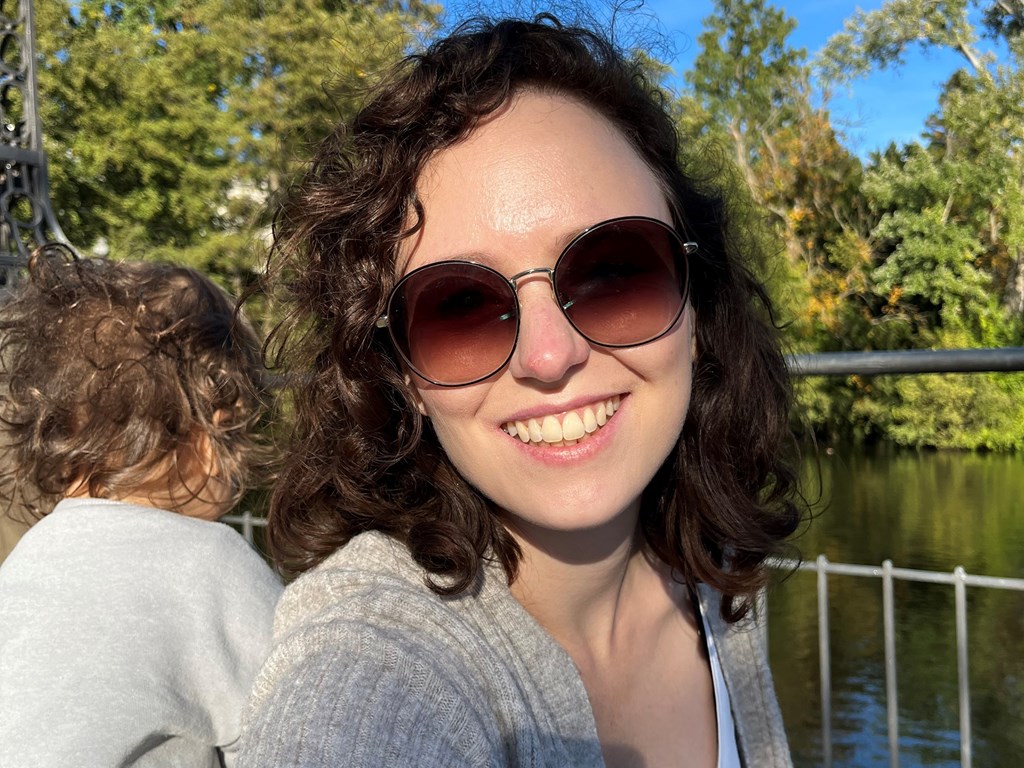Pregnant through artificial insemination despite PCOS: “I never gave up hope of my miracle baby”
Years ago, Sarah from Germany was diagnosed with PCOS. Despite this, she is now seven months pregnant with the help of a sperm donor.
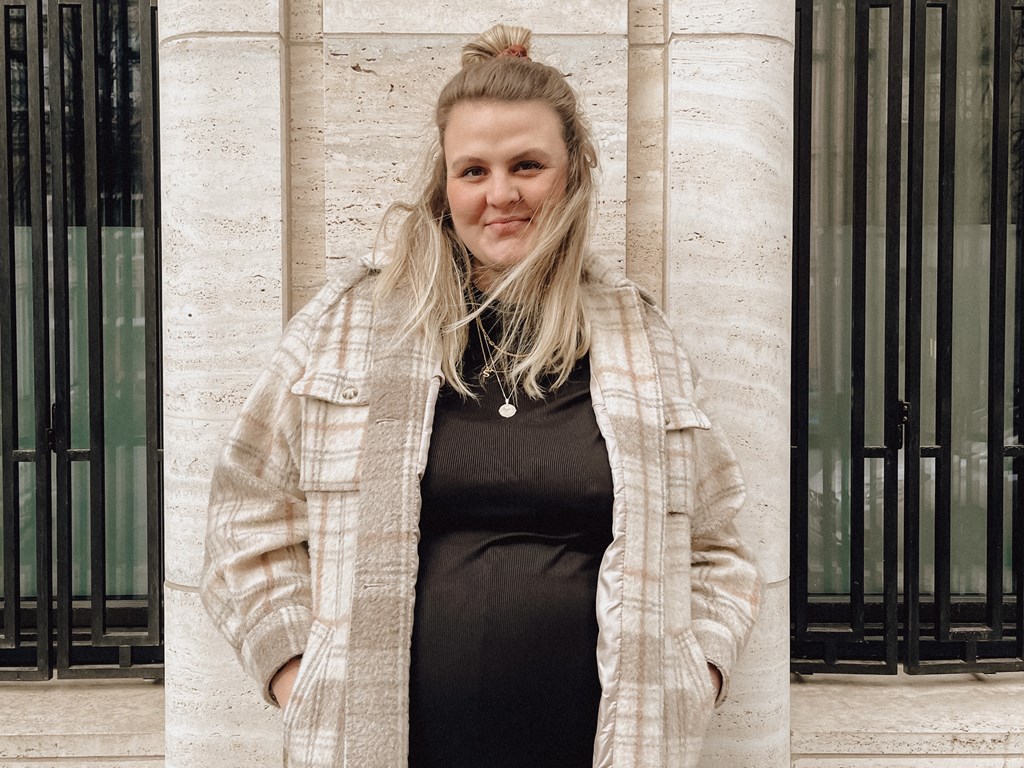
27-year-old Sarah from Berlin had always dreamed of becoming a mother. This dream took a hit in 2019, when she was diagnosed with polycystic ovary syndrome (PCOS) as well as a resistance to insulin; both factors that can make a pregnancy difficult or even impossible.
“The diagnosis literally pulled the rug out from under my feet. At the time I did not have a partner and my whole idea of having a family started to fall apart,” Sarah says.
Despite the difficult circumstances, Sarah’s wish to have a child only grew stronger.
“My first thought was: What are my options now?”
She started researching and came across the term single mum by choice.
“I had a feeling that this could be the path for me,” she says.
During her research, she learned more about sperm banks and that they are indeed a legal option in Germany. She scoured YouTube, blogs and websites.
“Phrases like fertility clinic, sperm bank and artificial insemination had never been a part of my life,” she says.
It was really good to know that I wasn’t alone and that many, many people fight and must fight for their babies.
For Sarah, it was a given that she would go through a sperm bank to have a child.
“It is the safest way; it is hygienic and controlled. I do not trust private donors who only wish to donate sperm through the act itself. I did not want to get to know the donor or actively be with him.”
Sarah found support in family, friends and online
After months of research, Sarah shared her plans with her sister, with whom she has a close relationship. Over time, she filled in her closest family and a colleague.
“Everyone supported me from the outset, accompanied me to appointments and filled in for me at work. I always felt deeply upheld and there was never a negative comment.”
She also found support online.
“The conversations on Instagram and with like-minded people also helped me. It was really good to know that I wasn’t alone and that many, many people fight and must fight for their babies.”
I want to encourage other women. Please don’t give up hope!
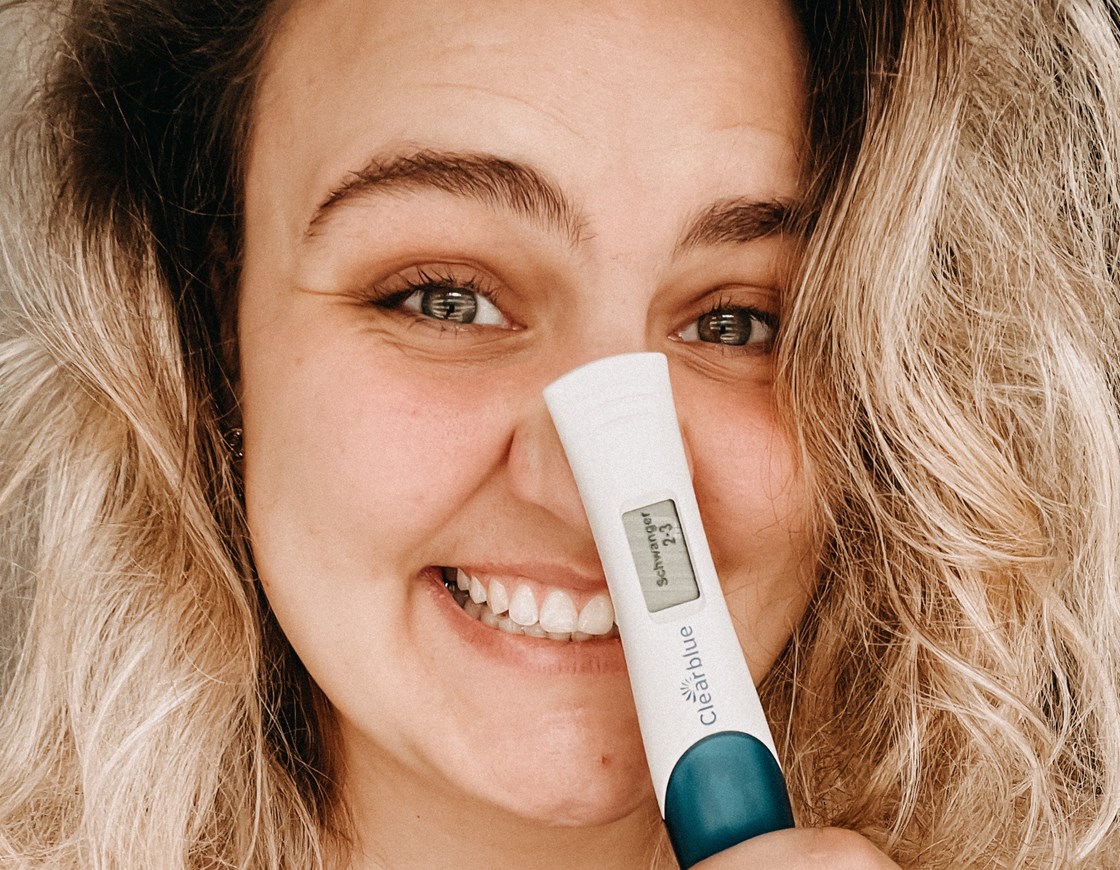
Unsuccessful attempts broke Sarah down
From October 2020 to February 2021, Sarah underwent three intrauterine inseminations (IUI) – one of the most common forms of fertility treatment. All three attempts to get pregnant failed.
“Every time I was euphoric and interpreted every sign from my body as a positive. With the overthinking and overinterpretation I mentally broke myself. I cried and was in doubt,” says Sarah.
Sarah took a break, rested her body and got some distance.
“I was able to get back to myself again. However, the wish to have a child remained.”
In August 2022, Sarah underwent her first IVF treatment (in-vitro-fertilisation). This resulted in one fertilised egg, that unfortunately did not result in pregnancy.
The donor she had used so far was no longer available, so Sarah had to find a new donor.
“That was very exciting. I looked for different criteria. Everyone in our family is tall, I am 190 centimetres (about 6ft 3in). Otherwise, both he and his family should be healthy, because we have already had cases of cancer in our family. An employee at European Sperm Bank brought it to my attention that I was not looking for the perfect partner, but for a donor so that I can bring a healthy, active and happy child into the world.”
Sarah then started her next treatment. This time she underwent ICSI (intracytoplasmic sperm injection), a more advanced form of IVF. Two eggs were fertilised and developed into blastocysts that were inserted into Sarah’s womb. One of them resulted in pregnancy.
Sarah remembers thinking: “This is my miracle!”
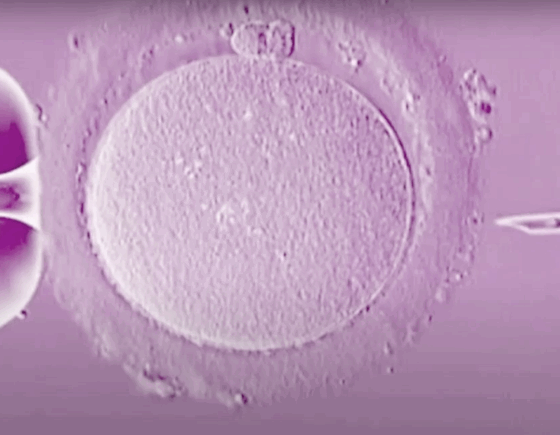
With the intracytoplasmic sperm injection (ICSI) the sperm in the is injected directly into the egg cell in the laboratory.
“To give up my dream of having children was simply not an option”
Finally, Sarah’s wish to be pregnant had come true, despite all the challenges.
“To give up my dream of having children was simply not an option for me. I always knew I wouldn’t stop until I was pregnant, and my child was here,” she says.
But she hasn’t forgotten what she went through to get here.
“I want to encourage other women. Please don’t give up hope! I fought for two-and-a-half years; I invested a lot of money, tears, time and energy. Now I am pregnant, and everything was worth it. This is always so easy to say in the end, but I am the happiest pregnant woman ever!”
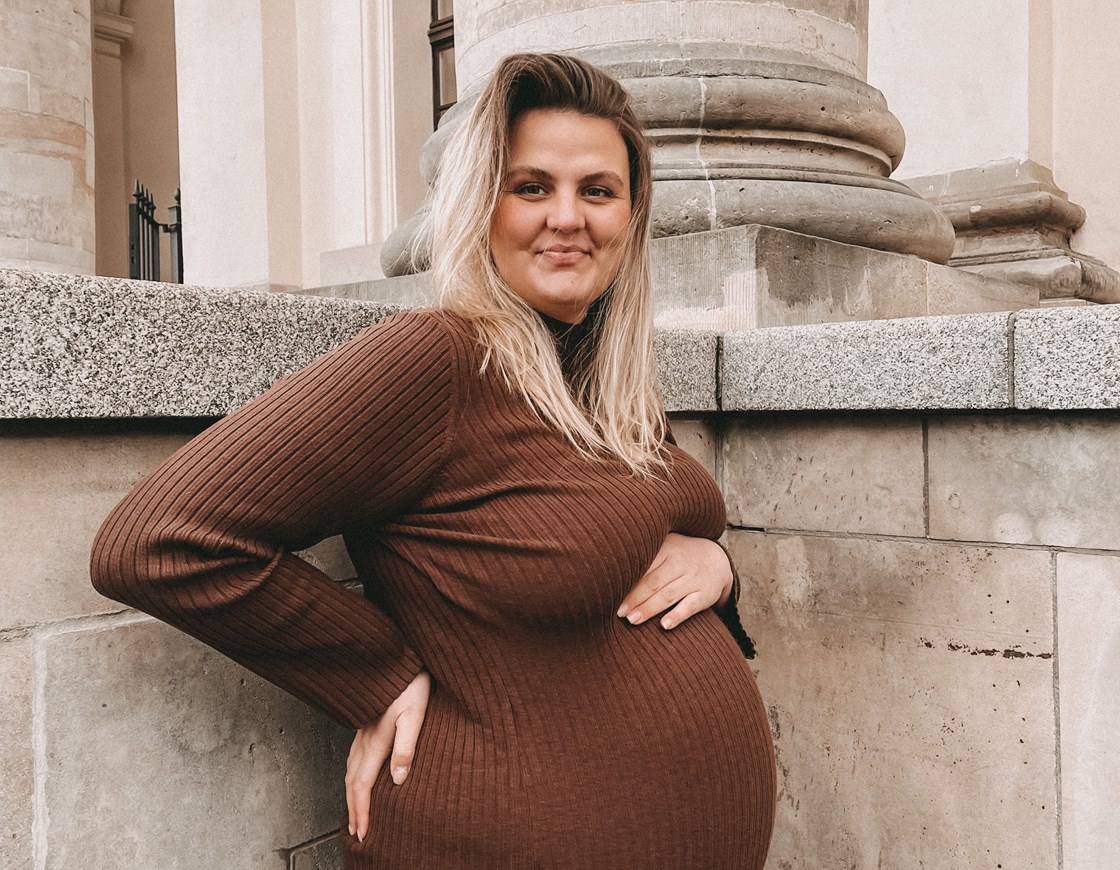
Sarah can’t wait to become a mother to her little baby boy.
“I can’t say what I am looking forward to the most. I would like to be a great mum to my son. I would like to show him the world, share our family traditions with him and for us to start our own. I would like to make him feel that he is perfect as he is. Both I and the rest of the family are his safe haven. If I can manage that, then I have done enough.”
Sarah got through her fertility journey by taking it one step at a time. And there may be more steps in the future:
“At my fertility clinic, I have more frozen fertilised eggs – in case I want him to have a sibling one day.”
Sarah is in a paid partnership with European Sperm Bank.
You might also enjoy
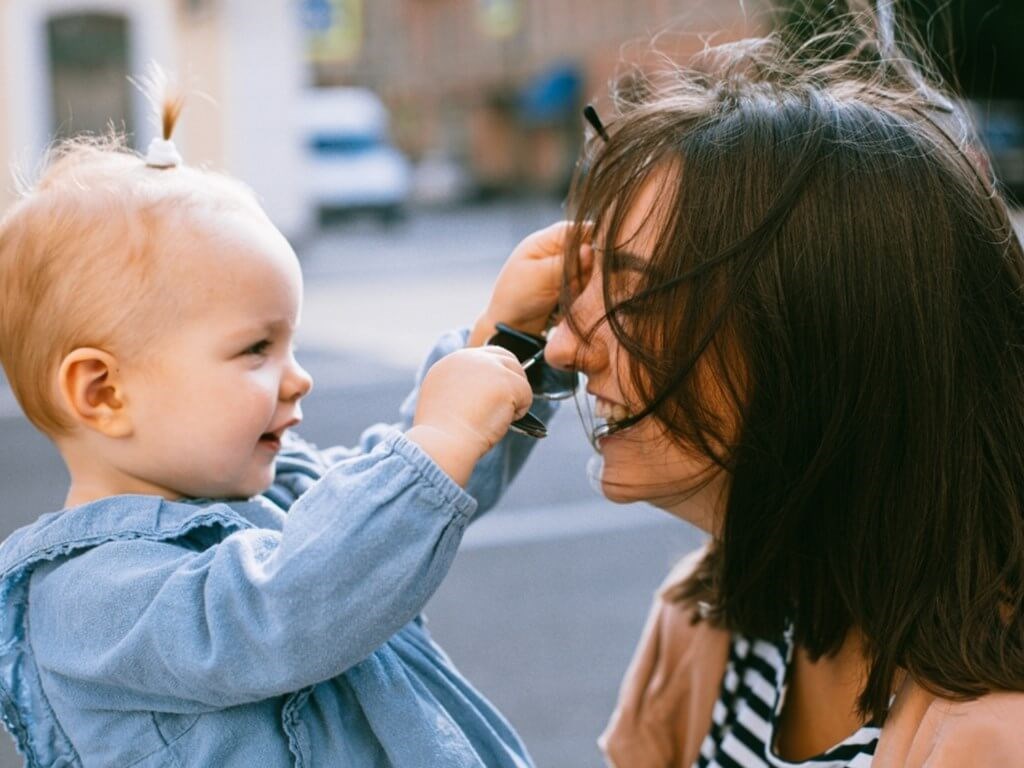 Life as a parent
Life as a parentHere's How to Tell the World that You're a Solo Mum
You might already know how to talk to your child about being donor-conceived, but how do you speak to strangers and colleagues about it? Psychologist Henriette Cranil gives you her best advice for the conversations to come.
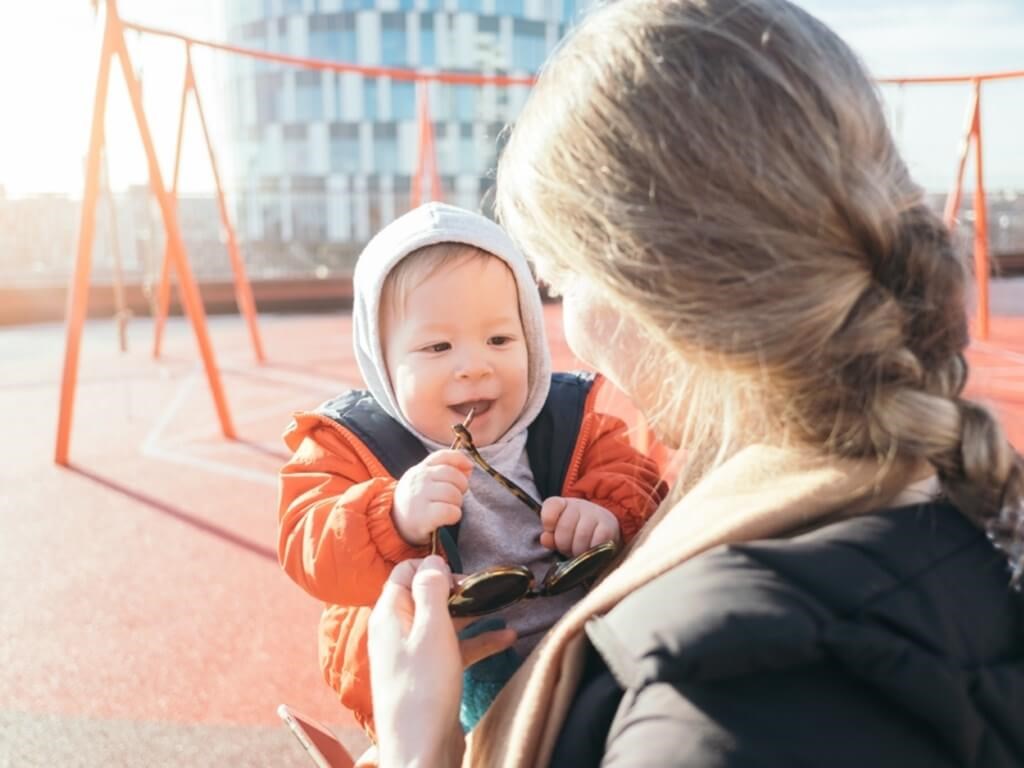 Solo motherhood
Solo motherhoodAre you ready to be a single mother? 7 survival tips for single mothers by choice
If you’re considering becoming a solo mum, you’re probably asking yourself questions like 'how will I cope with years of interrupted sleep?' Or, 'what about male role models?' Here's our guide to making life as a single mother by choice as easy as possible.
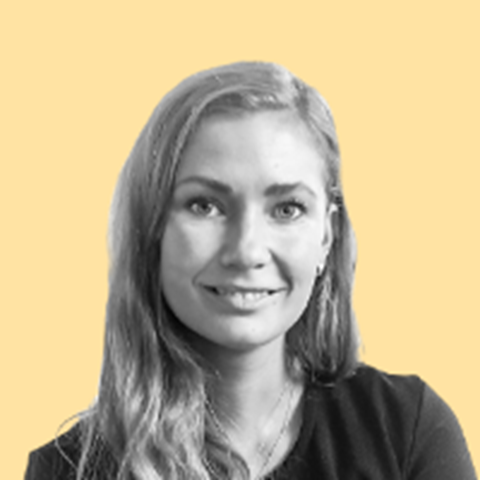 Matilde Hansen
Matilde Hansen